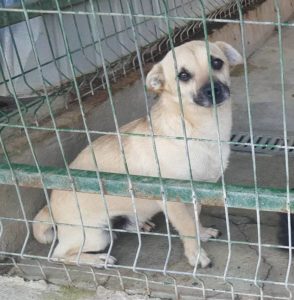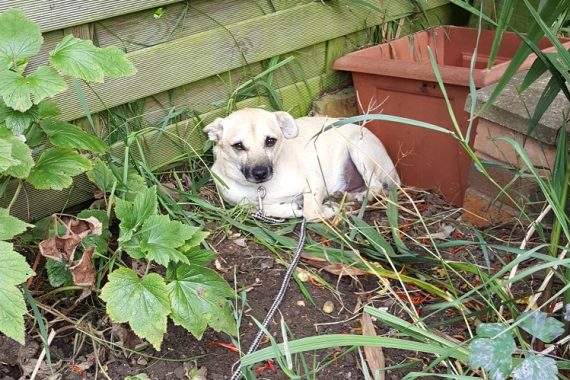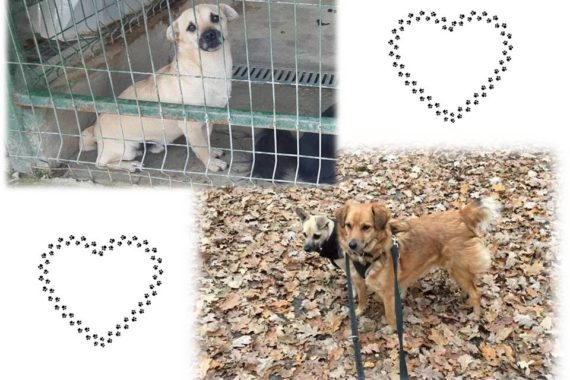
Living With Romanian Rescue Dogs Advice on Fearfulness
Romanian dogs tend to be a little bit different to our UK dogs, they can have stronger natural instincts, be a bit more cautious and sensitive and don’t always respond the way you would expect them to with the usual teaching methods, which can present some challenges for their guardians.
You may have found, if you’ve already had problems and enlisted the help of a local trainer, they might not have been able to give you the most beneficial advice, because many UK trainers don’t have a lot of experience working with Romanian dogs, and their little quirks & characteristics.
So, many of the articles on this website are designed to offer you some basic tips and information on the kinds of problems, that I know from my experience of both living with and working with many adopters, can be common amongst Romanian Dogs. Of course these are not problems that are exclusive to Romanian dogs, so the information here could be useful to anyone.
PROBLEM
Wary/Fearfulness of Strangers and Visitors to the House
 Above is a picture of Tico, one of my foster dogs, who was absolutely terrified of me when he arrived. This is a problem I know a lot of adopters have experienced, and there are a couple of things I see and hear of people doing, that can make this problem worse. Often the things we do seem logical to us, but that can be because we’re looking at it from a human perspective, and not from the dog’s point of view.
Above is a picture of Tico, one of my foster dogs, who was absolutely terrified of me when he arrived. This is a problem I know a lot of adopters have experienced, and there are a couple of things I see and hear of people doing, that can make this problem worse. Often the things we do seem logical to us, but that can be because we’re looking at it from a human perspective, and not from the dog’s point of view.
Tip #1
Do not let strangers touch or stroke your dog unless it’s blatantly obvious your dog wants them too.
Be aware though, what you see as blatantly obvious may not be what your dog is feeling, and this applies to any nervous of fearful dog, not just Romanian Rescue Dogs. Sometimes what we interpret as a nervous dog being friendly and wanting to say Hello to strangers and visitors, is actually not the case.
Just because your dog chooses to approach a stranger, does not necessarily mean they want to be touched or stroked. Dogs gather information by sniffing, they want to investigate, they need to determine if this person is safe or not, and this is especially so with nervous dogs. So if they decide they feel brave enough to tentatively approach and have a sniff of this stranger, to gather more information, if that stranger then immediately reaches out to touch them, Boom! That has just confirmed to your dog that strangers are unpredictable and scary and not to be trusted.
In human terms, if I choose to talk to you, it’s because I want to learn a bit more about you, have a conversation, gather information, it doesn’t mean I want you to reach out and start touching me, or trying to tickle behind my ears! I am more than likely to either jump back or lash out at you 🙂
Can you see how this may relate to your dog? It’s not appropriate behaviour between two humans that have only just met, so please don’t expect your dog to automatically be ok with it, especially if they are anxious.
Tip#2
Allow your Rommie the choice whether they interact with anyone.
Give them the freedom to approach or not depending on how they feel and don’t pressure them. Especially request that your visitors or the stranger refrain from trying to entice them to come nearer and make friends, this can actually make an anxious dog feel a lot more anxious!
Imagine something you’re scared of and that something is trying to encourage you to come closer? How would that make you feel? In addition to this, the body language of someone trying to encourage your dog to make friends, usually involves being bent over toward them, reaching out and staring straight at them, which can all be intimidating displays of body language to a dog that is lacking confidence.
Tip#3
Do not get strangers or visitors to offer treats to your Rommie in the hopes that this will make them ‘friends’
I completely understand the logic from your point of view of doing these things, but for a dog that is uncertain or afraid of strangers, having strangers offer them treats can create a lot of conflict and have the opposite effect of what you’re trying to achieve.

Imagine you’re terrified of spiders, and I take you into a room where there is a huge spider holding a £50 note. You really want that £50 note! You may well force yourself to edge toward the spider, tentatively reach out and take the £50 note, but it doesn’t make you any less afraid of that spider, and in the process, your heart rate has gone up, your adrenaline is pumping, and if that spider moves….!!! There is going to be an uncontrolled reactive outburst of some sort, yes?
Can you see how these things might relate to your dog?
It’s your job as your dogs guardian to protect them when they need it, so they don’t feel the need to protect themselves. There is obviously a lot more to handling and resolving these situations than I can include in these brief articles. They’re meant as quick tips to help you avoid further problems and get you started in the right direction. Subscribe to the The Dog’s Point of View to make sure you get to see the future articles in this series.
Where to Go Next If You Have a Fearful Dog
When you have a fearful dog or a dog that reacts out of fear it can be really hard to know the best way to handle situations and ultimately help them overcome these fears.
Emotionally driven behaviours can be complex and tricky to work through. Many adopters end up simply managing the problem for years, but it doesn’t have to be that way.
If you have a fearful dog or a dog that reacts to visitors when they come to your house, check out the Romanian Rescue Resource Portal for Webinars and programs specifically created for Romanian Rescue dogs with these kinds of challenges.
You Can Find All the Details about Them HERE

You will be delighted to know that little Tico settled wonderfully once he realised he was safe. He quite quickly showed us his cheeky, loving side and is now enjoying a fantastic life with his new family who amazingly adopted both him and my other foster dog Honey together! How amazing is that!
Please feel free to share this article with anyone that may find it helpful
Dr Carlos Pires-Afonso
Maureen Ritchie
Susanne Quinn
Michelle
John
Michelle
Stephanie
Michelle
Diane Mason
Michelle